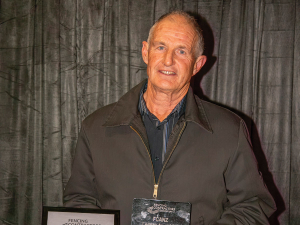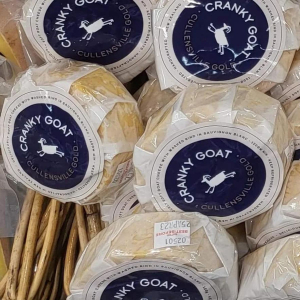I agree with him the pendulum has swung too far and the environment has suffered.
Wills also said farmers now need to be more sensitive to their environmental footprint. My guess is many farmers would wince on reading that. What does it mean in practical terms? More fencing, more chemicals to reduce greenhouse gas emissions, bigger effluent ponds, fancy new fodder crops that might reduce rumen methane generation, rumen boluses that introduce genetically modified bacteria to the rumen? Whatever it may mean, it sounds expensive.
Farmers can be forgiven for feeling pressured by government, processing industries, banks and falling profits to increase production. Then there’s the feeling they are ‘got at’ by councils, urban dwellers and international markets because of real or perceived environmental damage.
Yes, the environment has suffered but so have many farmers and their families. It can all seem unfair when you are desperately trying to stay in business.
However, there is another way of approaching the situation, which can lead to greater profit and sustainability. All it takes is an inquiring mind, some strategic measurements and a bit of discipline.
Three aspects of the farm environment can be measured and managed more effectively and sustainably using a profit focus, as follows.
First, soil quality may be improved greatly by the adoption of the Kinsey Agricultural Services’ fertiliser recommendations that can have a profound effect on and pasture production. The focus on total exchange capacity and adjusted base saturation percentages for key elements results in a higher nutrient uptake by pasture plants along with improved physical structure and biological activity in the soil.
Farmers who have followed such recommendations over the past five years and have tested soils down to one metre in depth have seen significant increases in soil carbon. The greater levels of organic matter, better soil structure and greater root depth have all helped to take the edge off the drought on these properties.
Second, pastures. Overstocking, risky chemical applications, over-cultivation, pugged paddocks – pastures and the soils under them have been abused all over the country. However, new tools now allow the assessment of daily profit from various management strategies and can lead to major benefits for the environment and farm profits. One benefit is a big drop in weeds such as buttercup, thistles, daisies, docks, willow weed and penny royal without the need to spend a single dollar on sprays.
Third, in animal husbandry farmers are wedded to the idea that chemicals will always fix things. I was part of that mindset many years ago when I worked at Ruakura on the main health problems of the dairy industry at the time: grass staggers and bloat. They became a problem when soluble chemical fertilisers were introduced along with intensive grazing and controlled starvation. We tested a large number of proprietary products because we believed chemicals must hold the answer.
Today the good news is that using the right measures to manage soils and pastures will lead to more nutritious feed and healthier animals with greatly reduced chemical inputs. A profit focus will also highlight the need for better stock condition. I have seen farmers who take this approach reduce their animal health bills dramatically.
So is the environment farmers’ first priority? A major focus has to be improving the profitability of their businesses, without which they and their families will not survive financially. But if in doing that they degrade the environment then their profitability is not sustainable, so they do have a financial imperative to protect the environment.
They can succeed in both priorities. It has taken me a long time to work out how, but I can now say with confidence that farming can be sustainably profitable without degrading the environment. What is more, farmers can act on Bruce Wills’ concerns and work to reduce their overall environmental footprint by increasing soil carbon. It is already being done here successfully. You can start today if you want to.
• Peter Floyd is the managing director of Cogent Farming Business Systems Ltd. www.profitfocusedfarming.co.nz Tel. 0800433376
















